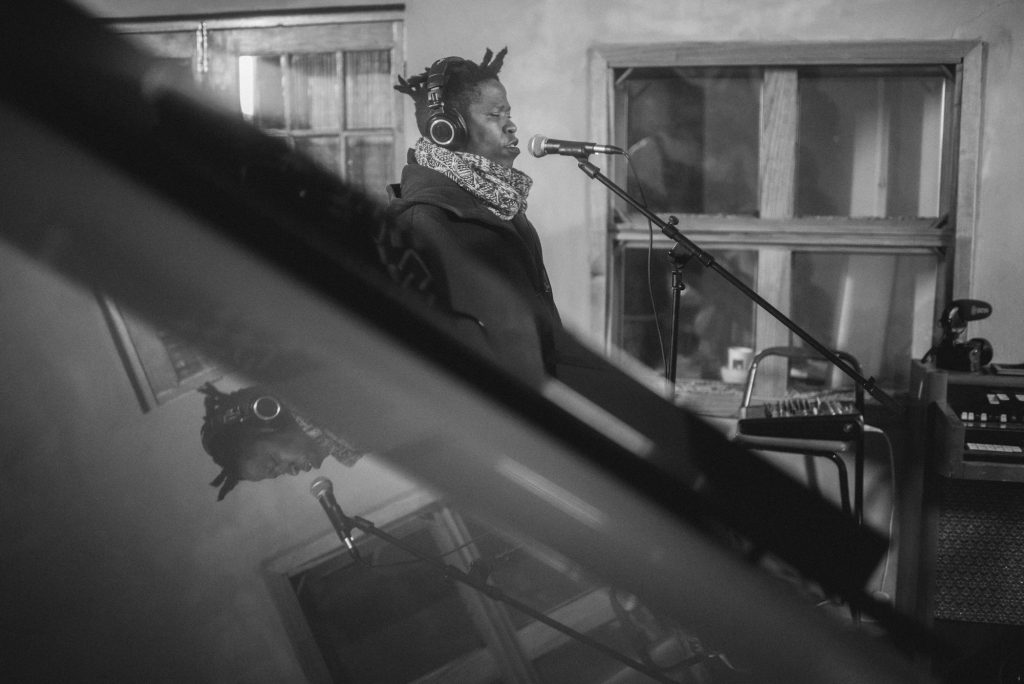
Siyabonga Mthembu, photo: Tseliso Monaheng
Siyabonga Mthembu, photo: Tseliso Monaheng

“We fetch songs from places, or songs fetch us from places.”
—Hymn_self
Originating in Kempton Park, Tembisa, in the East Rand of Johannesburg, Siyabonga Mthembu’s musical project stems from the collaborative dimension of storytelling in the context of the transformations that led to Nelson Mandela becoming president of South Africa in 1994. Known also by the alias “Hymn_self,” Mthembu is the lead vocalist of The Brother Moves On, a band and performance art ensemble that he formed with his late brother Nkululeko and cousin Zelizwe in 2009, when they released their first six-track unmastered EP The Golden Wake. The band grew through collaborations and contaminations, questioning “what it is to be rhythmically South African” and reinforcing the understanding of jazz as an indigenous knowledge system and network of consciousness stretching across the American and African continents. Mthembu is co-curator, with Thandi Ntuli, of “Indaba Is,” a compilation taking South African improvised music in the context of kinship and communal ties as an established form of ancestral knowledge passed down through generations.
Influenced by histories of solidarity and community that accompany the New Orleans tradition of the “Jazz Funeral” or “Second Line,” Mthembu experiments with the parade’s build-up of emotional, sonic, and spatial expressions of collective care. One of the most African-retentive cultures in the United States, the Second Line originated in early support societies that emerged in New Orleans African-descended inhabitants, later known as Social Aid and Pleasure Clubs, which sustained the continuity of a number of traditional African customs as well as mutual-aid and welfare among their communities. A Prayer for Healing (2021) is a spatial and sonic exploration of the idea of vocal dissonance expressed through a Second Line procession of chants by a vocal dissonance choir, a classical Indian Jazz trio (tabla, sitar, and tenor saxophone), and a traditional instrument in the form of the Kamali Ngoni built by the composer of the incantations. The piece, which is part of the procession, consists of a recorded video performance of two incantations for peace and healing written by Zelizwe Mthembu entitled “A Prayer for Healing” and “Eternal Dove of Peace.” Six traditional percussionists from South Korea respond to the recorded video as part of a live parade conducted by Mthembu, joining forms of lamentation and procession in a sharing of songs without a particular language, the lack of words celebrating human connection by crushing the exoticization of a song through words.
Siyabonga Mthembu, photo: Tseliso Monaheng